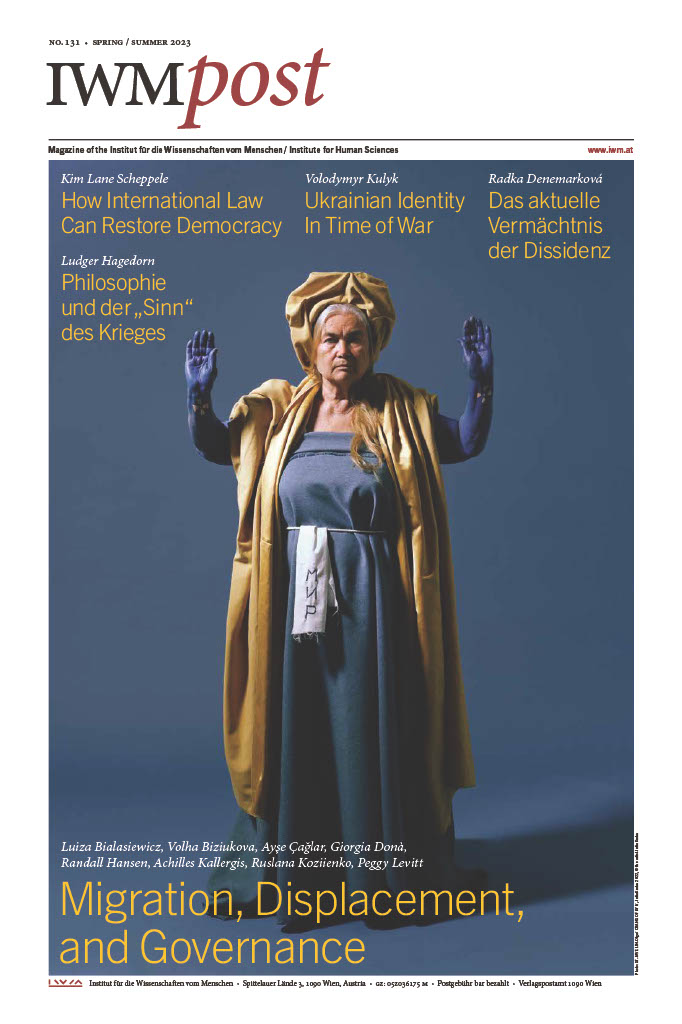
The photo on the cover of this issue is taken from the portrait series ST. JAVELIN by Julia Krahn. The artist invited Ukrainian women who have fled their country to tell their stories through images and interviews. The photo points to the essays by Bialasiewicz and Biziukova, Koziienko, and Lazareva—which discuss the reception of Ukrainian refugees in Europe—as well as to the issue’s larger focus on migration, displacement, and governance. Hansenelaborates on the shifts brought about by the 1973 oil crisis, which resulted in massive migratory flows. Donà and Çağlar identify aspects of the coloniality of power in the governance of migration. Kallergis calls for a reframing of environmental migration in the Global North, while Levitt addresses dramatic shifts in the social protection of migrants.
Two essays focus on Ukraine, with Kulyk pointing to shifts in Ukrainian identity in the wake of the war and Shynkarenko to the importance of the Crimean Tatars’ right to self-determination as a source of stability for the region.
Other essays focus on challenges to democracy. Scheppele highlights the importance of international law in strengthening democratic structures; Özkan shows how West German anti-communism has promoted the Islamization of Turkish migrants; Mineva discusses the local adaptation of contemporary global culture wars; and Hovhannisyan explores the promotion of anti-gender movements in Europe by evangelical organizations in the United States.
Youth and national minorities as political subjects in search of representation are the subject of essays by Beilinson and Germane, respectively. Two further essays address dissident intellectuals in late socialism. While Denemerková traces the legacy of East Central European dissidence in contemporary China, Blagojević addresses the adoption of ethnonationalist positions by some Yugoslav intellectuals.
Three essays address intriguing philosophical questions: Cartlidge tackles whether we may still read Martin Heidegger; Ktenas explains how Cornelius Castoriadis approached the question of truth; and Hagedorn offers a brief overview of a philosophical approach to war. Finally, Austin’s contribution on the 1931 assassination attempt on King Zog recalls a rather unknown episode from Vienna’s past.
Click here to see the full contents, and to read the IWMpost 131